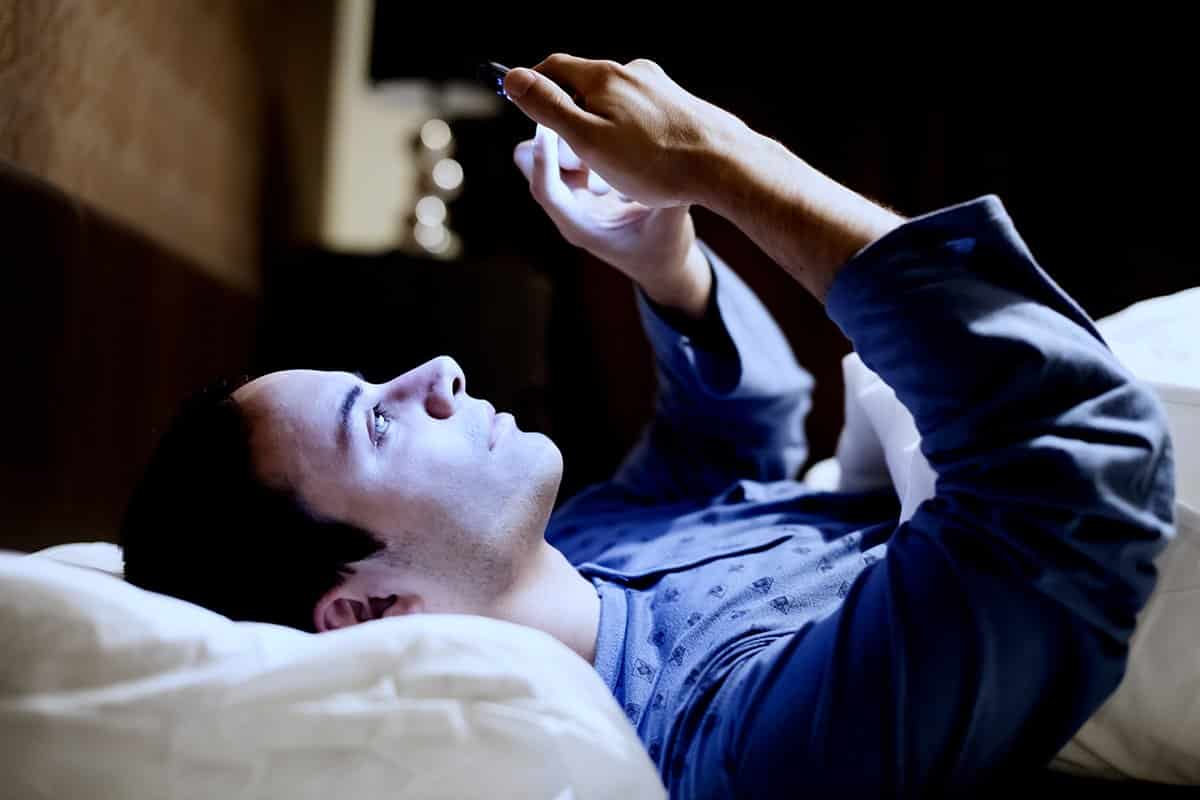Many of us probably know that the “blue” light we see on phone screens and other electronics can make it more difficult to sleep — this type of light stops the brain from releasing melatonin, a hormone that makes us sleepy. People can counter this by avoiding screens before bedtime or using apps that block out the blue light. Now, research suggests a new option: Amber-tinted glasses.
For a small study published in The Journal of Psychiatric Research, researchers asked 14 people who suffer from insomnia to wear either amber-tinted glasses or placebo glasses for two hours right before they went to sleep at night, during seven consecutive days.
One month later, the participants repeated the study with the opposite pair of glasses. “Wearing amber vs. clear lenses for two hours preceding bedtime for one week improved sleep in individuals with insomnia symptoms,” the study concluded.
Study author Ari Shechter, an assistant professor of medical sciences at Columbia University Medical Center, said that the results weren’t particularly surprising.
“We expect that blue-light exposure before bedtime might contribute to sleep difficulties or exacerbate sleep problems in individuals who already experience difficulties, so we were not surprised there was an improvement in sleep quality,” he told HealthDay.
[Editor’s Note: The information provided should not be considered a substitute for professional advice. Please consult a sleep doctor or other medical expert if personal health questions come up.]
While Shechter and other professionals recommend that people avoid using screens before bed when possible, Shechter says that amber-tinted glasses are an affordable and easy option to block out blue light.
“These kinds of [amber-tinted] glasses are very widely available, probably for $5 to $10, although more expensive options might be available for different styles,” he said.
RELATED: Can You Really Filter Out Sleep-Disrupting Blue Light With An App?
This particular study was extremely small and focused on people with known sleep issues. As such, it’s unclear whether these results are applicable to the population at large, and if they would have any effect on people who don’t have insomnia.
That said, they seem like a harmless option — and possibly worth trying if there is a concern or worry about the blue light from one’s electronics making it more difficult to fall asleep.
[Editor’s Note: The information provided should not be considered a substitute for professional advice. Please consult a sleep doctor or other medical expert if personal health questions come up.]
Featured image: JPliatsushok/Shutterstock

